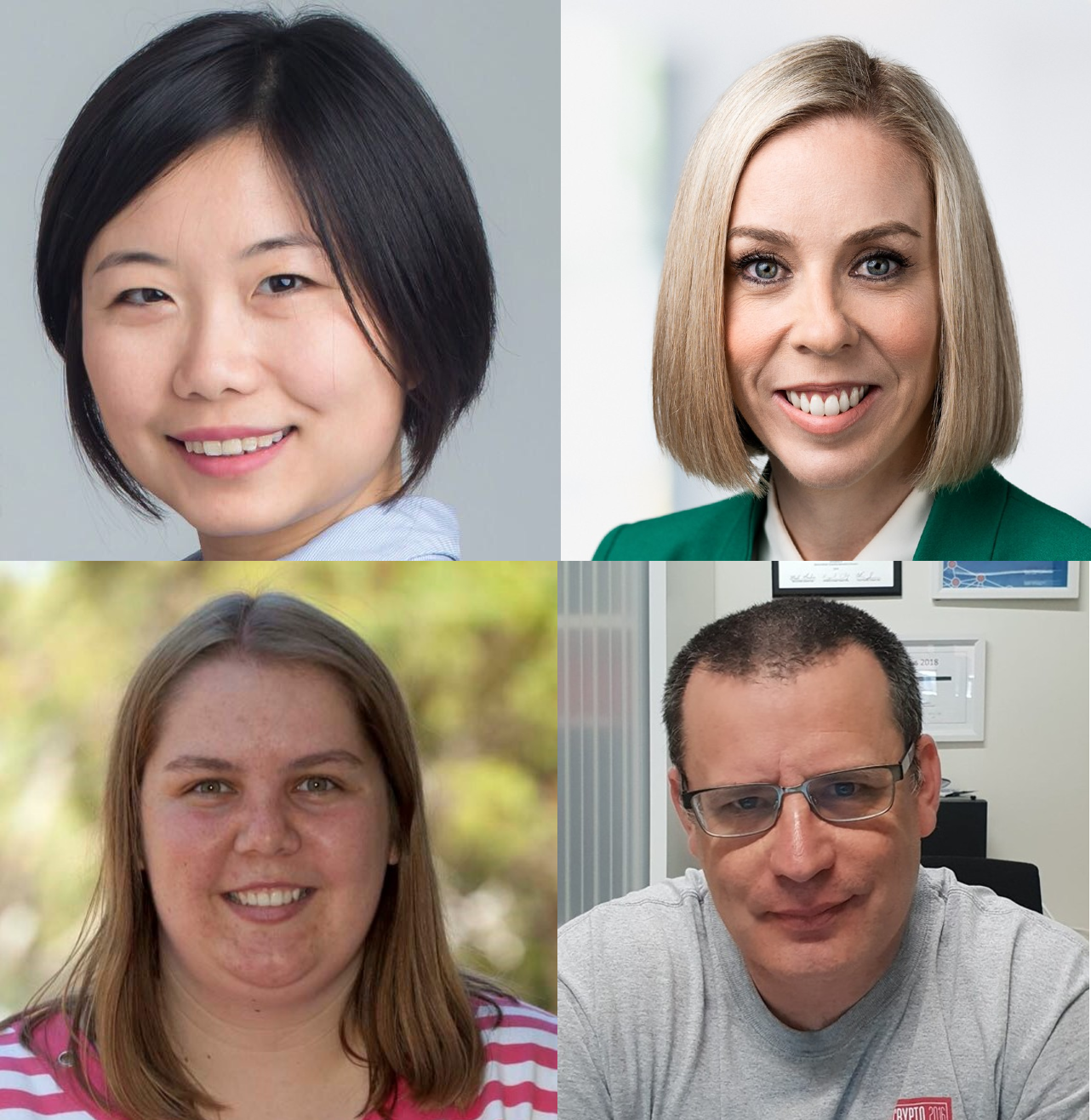Tall Poppies’ world-class research recognised

Tall Poppies (clockwise from top left): Dr Jiao, Dr Dunning, Dr Yarom and Dr Schilling.
Four University of Adelaide researchers have won 2020 South Australian Young Tall Poppy Science Awards.
The Tall Poppy Awards, an initiative of the Australian Institute of Policy and Science, recognises achievement in the sciences and helps to communicate the passion and purpose of Australia’s finest scientists.
The University of Adelaide is one of Australia's most research-intensive institutions.
“With world-leading researchers, modern facilities and an innovative culture, the University of Adelaide is committed to delivering research that is highly valued by our local and global communities,” says the University of Adelaide’s Deputy Vice-Chancellor (Research) Professor Anton Middelberg.
“Our Tall Poppies have been recognised for their innovative research that will improve people’s lives.”
The winners are undertaking research to help solve the grand challenges faced by society: sustainable energy, good health and wellbeing, food security and societal wellbeing. Their wide-ranging work focuses on a number of different areas: improving crops by overcoming soil constraints found in the majority of Australia’s cropping land, converting more clean energy into transportable fuels by developing innovative catalysts, protecting computers from malicious attacks and improving IVF techniques.
“Our Tall Poppies have been recognised for their innovative research that will improve people’s lives.”Deputy Vice-Chancellor (Research) Professor Anton Middelberg
The University of Adelaide’s 2020 Young Tall Poppy Science Award winners are:
Dr Rhiannon Schilling - Research Field: improving crops to overcome soil constraints
Soil constraints, such as high levels of sodium, affect 68 per cent of cropping land in Australia. Sodic soils with high levels of sodium have multiple chemical and physical properties that restrict root growth and subsoil water use leading to reduced overall crop growth and grain yield.
Dr Schilling is developing agronomic solutions to improve crops to overcome soil constraints. Her research has focused on increasing root growth and subsoil water use in sodic soils by pyramiding tolerance to multiple soil constraints into elite wheat varieties.
Rhiannon is an enthusiastic agricultural scientist who participates in a diverse range of outreach activities including print and broadcast media, speaking about her career with primary and secondary school students and presenting her research to grower groups at field trial crop walks.
Dr Schilling received her PhD from The University of Adelaide in 2014 and is currently the Program Leader of Agronomy at the South Australian Research and Development Institute (SARDI) within Primary Industries and Regions South Australia (PIRSA).
Dr Yan Jiao - Research Field: developing catalyst materials for future fuels
Australia has a natural endowment of sunshine and prevailing wind, and is now transitioning to an economy supported by renewable energy. South Australia is now leading the country with more than 50 per cent of the electricity generated from renewable energy.
Dr Jiao is developing innovative catalyst materials that can convert those clean and inexhaustible energy resources into transportable fuels, to replace traditional fossil fuels. She is designing more efficient and reliable materials via computer modelling.
Dr Jiao is a Clarivate Analytics Highly Cited Researcher (Chemistry), and one of the 40 Rising Stars by The Australian based on research performance.
Dr Jiao, who is currently a Senior Lecturer at the University of Adelaide, has participated in the organisation and delivery of activities for Young Women in Science, Technology, Engineering and Maths (STEM) events. She has led the production of an online video and delivered webinars on how to design new catalyst materials for clean energy conversion.
Dr Yuval Yarom - Research Field: protecting computer data from malicious attacks
Society has become increasingly reliant on computers’ ability to store and process our data, but at the same time, these computers have become a prime target for malicious agents which aim to exploit the computers’ access to personal or confidential data.
Dr Yarom’s research evaluates the capability of modern computer hardware to protect the data it processes and develops strategies and techniques for mitigating identified limitations.
He has identified and tackled vulnerabilities in computers and computer software used by virtually every computer user, and has worked with vendors such as Intel and Apple on improving the security of their products.
Yuval’s science communication efforts include multiple interviews for articles in national and international media and public speaking for professional and for general audiences. He enjoys mentoring young people interested in programming and maintains an active presence on social media.
Dr Yarom received his PhD from the University of Adelaide in 2014. He is currently a Senior Lecturer at the School of Computer Science in the University of Adelaide and a researcher at the Trustworthy Systems group in Data61, CSIRO.
Dr Kylie Dunning - Research Field: improving IVF techniques using non-invasive methods
One of the greatest challenges for IVF clinics is identifying which embryos are suitable for transfer back into the patient’s womb. The current gold-standard technologies include taking a small number of cells from the embryo (a biopsy), then sequencing the DNA to confirm that the embryo has the predicted number of chromosomes. As well as being invasive, this procedure is inaccurate.
Dr Dunning is developing new technologies that overcome the need for a cell biopsy, and instead, use light to take a non-invasive, “molecular photo”. This revolutionary procedure involves shining gentle doses of light upon an embryo and using the scattered light that comes back to reveal the intricacies of its biochemistry, providing insight into the health of the embryo.
Dr Dunning actively engages with the community: she has presented to more than 1000 primary and secondary school students, hosted high school student visits to her laboratory and presented to Rotary clubs.
Dr Dunning’s PhD was awarded in 2008 from the University of Adelaide. She is currently a Hospital Research Foundation Mid-Career Fellow at the University of Adelaide
Media Contact:
Crispin Savage, Media Adviser, The University of Adelaide. Mobile: +61 (0)481 912 465, Email: crispin.savage@adelaide.edu.au
